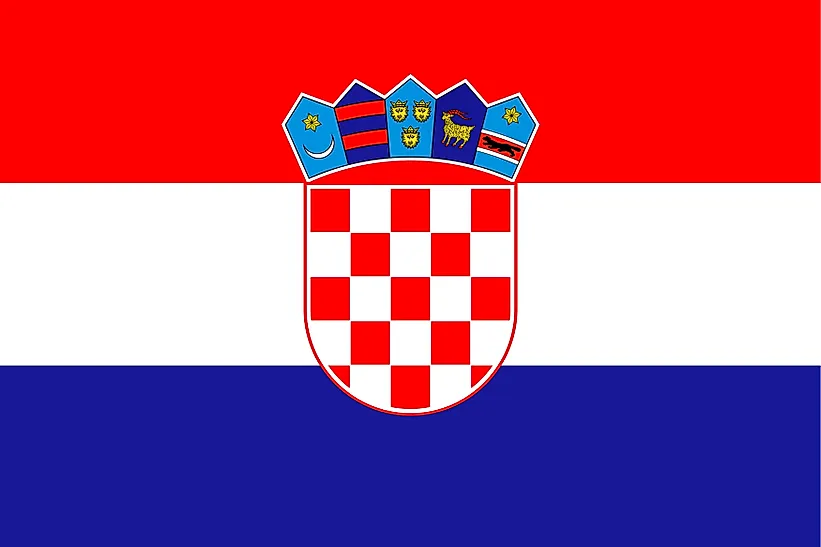
クロアチア
| 大陸 | ヨーロッパ |
| 資本金 | ザグレブ |
| 人口 | 4,313,707 |
| GDP | $94.24 億ドル |
| 一人当たりGDP | $22,400 |
| ダイヤルコード | +385 |
| ISOコード(2文字) | HR |
| ISOコード(3文字) | HRV |
Croatia Landscapes






About Croatia
Welcome to Croatia, a country where ancient history meets stunning natural beauty along the Adriatic Sea. With approximately 4 million people occupying 56,594 square kilometers, Croatia combines Mediterranean charm with Central European efficiency, creating a nation known for its pristine coastline, rich cultural heritage, and remarkable historical sites.
地理的特徴と自然の美しさ
Croatia’s geography is extraordinarily diverse, encompassing over 1,000 islands along its Adriatic coast, the Dinaric Alps mountain range, and the Pannonian plains in the east. The country’s coastline stretches for 1,777 kilometers, featuring crystal-clear waters and numerous hidden coves.
The Plitvice Lakes National Park, a UNESCO World Heritage site, showcases a series of 16 terraced lakes connected by waterfalls, creating one of Europe’s most spectacular natural attractions. The Kornati archipelago, with its 89 islands, offers a paradise for sailing enthusiasts.
Croatia’s karst landscape has created remarkable cave systems and unique geological formations. The country’s diverse climate zones support rich biodiversity, from Mediterranean species along the coast to Alpine flora in the mountains.
文化遺産と伝統
Croatian culture reflects influences from Central European, Mediterranean, and Balkan traditions, creating a unique cultural identity. The country’s UNESCO-listed intangible cultural heritage includes lacemaking, gingerbread craft, and traditional singing styles like klapa music.
Traditional arts include distinctive forms of embroidery, particularly from Lepoglava and Pag, and intricate wooden toys from Hrvatsko Zagorje. Croatian cuisine varies by region, from seafood along the coast to hearty inland dishes, with specialties like pašticada and strukli representing different regional traditions.
The Croatian language and its various dialects, along with traditional festivals like the Sinjska Alka, help preserve the country’s cultural identity. The ancient Roman palace in Split and Dubrovnik’s Old Town stand as testaments to Croatia’s rich architectural heritage.
歴史の旅
Croatia’s history spans from ancient Illyrian settlements through Roman and Byzantine periods to medieval Croatian kingdoms. The country maintained varying degrees of autonomy under Hungarian and Habsburg rule before becoming part of Yugoslavia in the 20th century.
After declaring independence in 1991, Croatia emerged from the subsequent conflict to establish itself as a stable democracy and member of the European Union. The country’s transition has been marked by successful integration into European institutions while maintaining its distinct identity.
現代の経済状況
Today’s Croatia has a diverse economy based on services, particularly tourism, along with industry and agriculture. The country’s tourism sector has experienced remarkable growth, with destinations like Dubrovnik, Split, and the Dalmatian coast attracting visitors worldwide.
Croatia has developed significant expertise in shipbuilding, food processing, and information technology. The country’s strategic position and modern infrastructure support its role as a transportation hub between Central Europe and the Mediterranean.
国際関係とグローバルポジション
Croatia maintains active participation in the European Union, NATO, and various international organizations. The country plays a significant role in regional cooperation and has become an important voice in European affairs.
ご存知でしたか?
• The Croatian coast features over 1,000 islands, but only 48 are permanently inhabited?
• The necktie (cravat) originated in Croatia during the 17th century?
• Dalmatian dogs get their name from Croatia’s Dalmatia region?
• The world’s smallest town, Hum, is located in Croatia?
結論
Croatia represents a remarkable blend of natural beauty, historical heritage, and modern development. From its stunning coastline to its picturesque national parks, from its ancient cities to its modern resorts, Croatia continues to enchant visitors while building a prosperous future. As it addresses challenges including demographic changes and economic diversification, Croatia remains committed to preserving its unique heritage while embracing its role as a dynamic European nation.